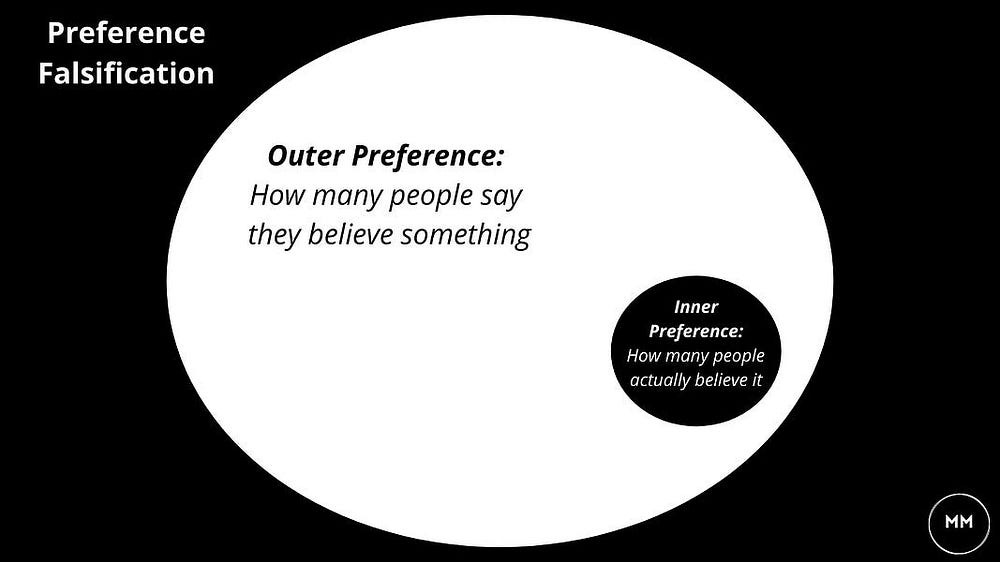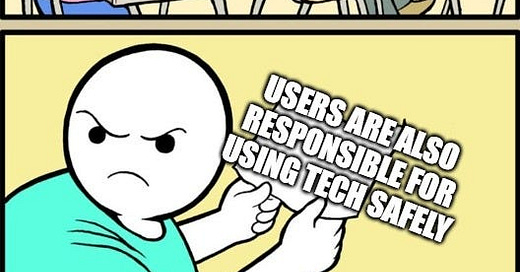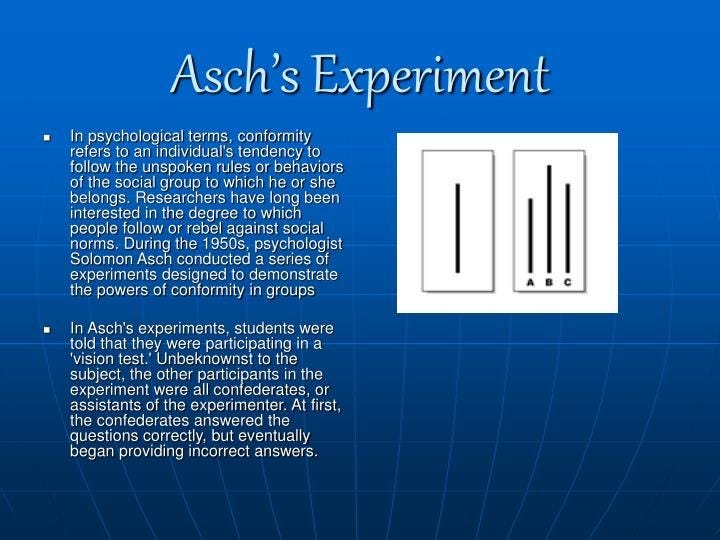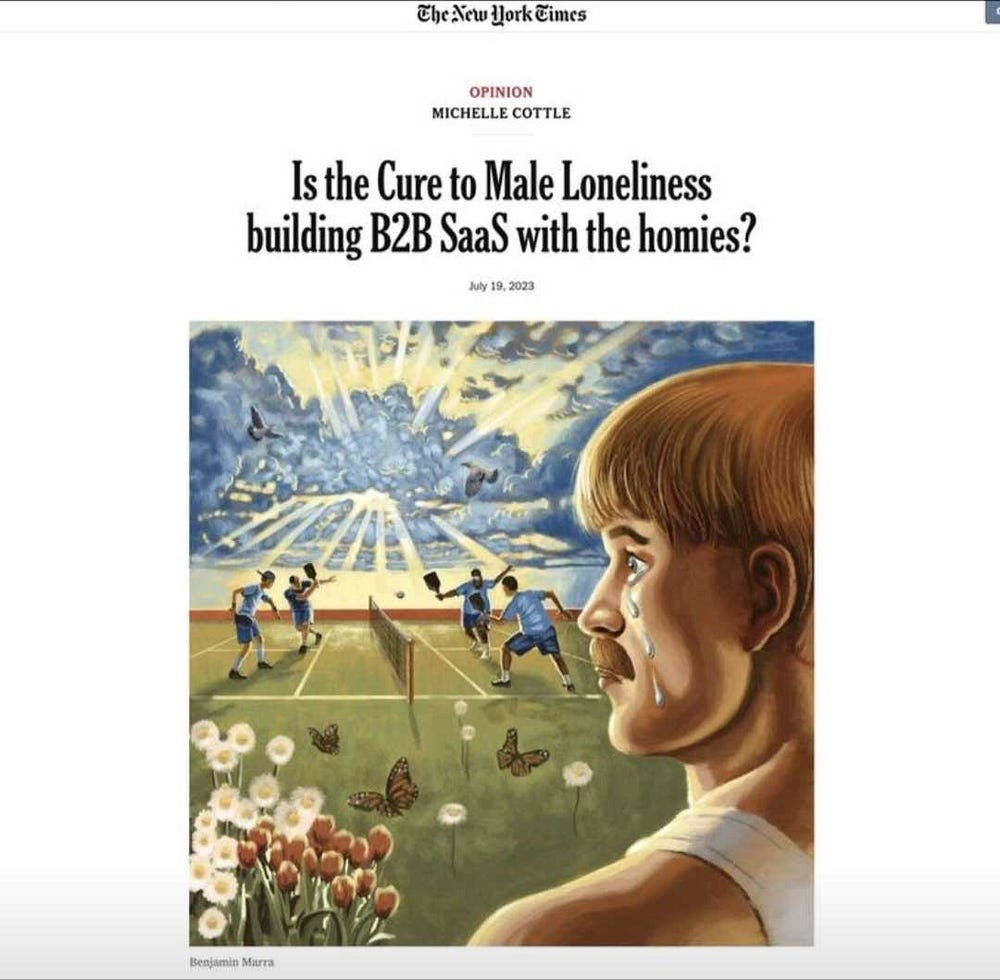Why you should read: “Democracy in America” by Alexis de Tocqueville [Recs]
Why this 19th Century French Aristocrat would have loved the Open Source Movement
Hey, it’s Devansh 👋👋
Recs is a series where I will dive into the work of a particular creator to explore the major themes in their work. The goal is to provide a good overview of the compelling ideas, that might help you explore the creator in more-depth
I put a lot of effort into creating work that is informative, useful, and independent from undue influence. If you’d like to support my writing, please consider becoming a paid subscriber to this newsletter. Doing so helps me put more effort into writing/research, reach more people, and supports my crippling chocolate milk addiction. Help me democratize the most important ideas in AI Research and Engineering to over 100K readers weekly. Many companies have a learning budget, and you can expense your subscription through that budget. You can use the following for an email template.
PS- We follow a “pay what you can” model, which allows you to support within your means, and support my mission of providing high-quality technical education to everyone for less than the price of a cup of coffee. Check out this post for more details and to find a plan that works for you.
Alexis de Tocqueville was a 19th-century French aristocrat who convinced his government (which was hostile to him) to pay for an overseas vacation to America. During this vacation, he developed many insights, which he compiled into his “Democracy in America”- a book that earned him superstardom, sociology street cred, and lasting fame. It should go without saying that bro is one of my idols, and this article will hopefully convince you to engage with his work. In particular, I think the following insights from Tocqueville are worth talking about-
Democracy and Conformity
Tocqueville observed that democratic societies foster a sense of equality among citizens. This equality, while positive in many ways, can lead to pressure for conformity- since it is very easy for people to conflate equality with sameness- creating an environment where the other is attacked by those who have branded themselves as liberators. In such a world, people will fear standing out or being different, leading to a homogenization of thought, expression, and behavior.
We will explore this idea by talking about what is, in my opinion, the most democratic system I know- social media and content creation, and how these spaces, which were positioned as places for authentic self-expression, invariably tend towards sameness and stifle individuality and innovation.

Interestingly, this conformity also happens without any external pressures (no one tells people to post or behave a certain way). Here, it arises from of our natural tendency to copy others and bring our behavior in line with the norm. Our desire to “stand out in a socially acceptable way” leads to the tweaking of our public personas till we are essentially playing the same social games as others. Once the social games are set, it’s very easy for our minds to engage in mental arms races with everyone. We’ll discuss this in the main section, since I think the more overt forms of social compliance are more obvious.
Both variants of compliance lead to the following mentality-
An Over-Reliance on Institutions
As democratic societies evolve, Tocqueville noticed a tendency for citizens to increasingly rely on the government under the expectation that an elected government should solve societal problems. Citizens abdicate personal responsibility in favor of state solutions, developing a sense of entitlement that external intervention should solve their issues.
This can extend beyond governments. We often expect institutions to make systemic changes without our having to put any skin in the game. We may talk extensively about the need for systemic change without acknowledging the importance of individual responsibility in taking (often painful) actions that lead to systemic change. We cry for the government or social media companies to do something about worsening mental health and the spread of misinformation on these platforms, but how many of us have actually tried to use these apps in a more positive way consciously?
“It’s crazy simple when we accept that we have agency and can be accountable for our own information diet. We love deepfakes when they confirm our bias. We hate deepfakes when they oppose our bias. AI has provided such a great foil on which to analyze just how little people around us actually understand themselves.”
-Thank you to Michael Woundenberg for this fantastic comment in our discussion around the real risk of Deepfakes. As he states, we are ultimately responsible for developing our mental gardens.
This “woe is me” mentality is harmful since it takes agency, freedom, and power away from people. It perpetuates the myth that institutions can dues-ex-machina their way into protecting the people from challenges. The AI Safety crowd is notorious for this, pushing for gating and overregulation to “prevent harm”. This approach carries an elitist assumption- these big brain regulators know what’s good for us, and they can stop us from harming ourselves.
We have a populace that is both fiercely intellectually homogenous and always looking to pass the responsibility for solving problems onto institutions. This creates a grim situation.
Tyranny of the Majority
Our new society ends up as a tyrant’s wet dream. A society with self-censorious and timid people who have become their own oppressors. A society where people fight against dissent so fiercely that they eventually forget how to do so. This society replaces the overtly evil drill sergeant with the faceless and impersonal bureaucratic system. People are forced to accept what is given since there is nowhere to dissent, no one to dissent with, and no one to fight against.
At this stage, “the normal” reigns supreme. Any non-compliance is punished, both subtly through alienation and apathy, and (sometimes) by active removal.
So, how do we counteract this? As with so many other cases, good ol’ shonen manga has the answers-
The Power of Me and the Bois
Tocqueville saw Voluntary organizations and local community groups as a crucial counterbalance to the negative tendencies of democracy. These come with some very good benefits-
They foster social bonds outside of government influence. Human connection is key to fighting an impersonal system.
They encourage banding together for some goal (which leads to solving problems).
They provide a platform for diverse opinions and protect against the homogenization of thought by allowing people to explore niches.
Civic communities can act as a buffer between the individual and the state, preserving liberty. They allow people to harness the power of collective action without being anonymized entities in the crowd.
Looks like the power of friendship continues to be a game-breaking strat. This has been one of the biggest advantages of the OSS movement in tech since it allows people to find their mini-communities and contribute to them. Individually, these contributions are small, but small changes in millions of places add up to paradigm shifts.
We’ve done a lot of looking over our shoulders at OpenAI. Who will cross the next milestone? What will the next move be?
But the uncomfortable truth is, we aren’t positioned to win this arms race and neither is OpenAI. While we’ve been squabbling, a third faction has been quietly eating our lunch….
Open-Source companies are doing things in weeks with $100 and 13B params that we struggle with at $10M and 540B.
And that’s my overview of Tocqueville and his relevance to our world. If it sounds interesting, grab some freedom juice, and let’s begin our exploration of one of the few French exports that actually deserves its hype.
PS- Please keep in mind that this article is my interpretation of Tocqueville and what I thought was most interesting. It is not a comprehensive overview of everything he said (I’m not a Tocqueville scholar) nor is it an endorsement of all of his ideas.
I provide various consulting and advisory services. If you‘d like to explore how we can work together, reach out to me through any of my socials over here or reply to this email.
How Democracy Enforces Conformity
“The passion for equality sinks deeper and deeper into the human heart, and as it spreads, it creates a society in which everyone is alike and no one is different.”
To explore the above idea, let’s look at the world of social media and content creation. These platforms are arguably the most democratic spaces we have ever known since anyone with an internet connection can share their thoughts and creations with a global audience (literally my story, lolz). A social media platform’s pitch is that it allows people to express themselves authentically, in a way that reflects who they are. But, ironically, they often fall prey to the very conformity Tocqueville warned against. Instead of fostering a diverse marketplace of ideas and expressions, we see a relentless drive toward sameness.
To prove this, I will talk about two different types of platforms that people use, and how they both converge to the same outcome. Firstly we have social media/content creation for professional needs. This is generally the advice given to anyone who wants to make it as a content creator-
Find trending topics to figure out a good niche.
Look at other major creators in your niche.
Talk about the same things they do in a very similar way they do (Mr Beast style delivery/constantly rehashing viral content or templates).
Have one or two slightly unique things about yourself so you’re not a fully interchangeable mediocrity (optional).
After GPT and other GenAI, people have supercharged this. They now suggest creating courses by letting AI determine the topics, telling you what to say, creating the course work, the images etc etc. Notice something, though- nowhere do these suggestions actually teach you (or ask you) how to develop your own voice, to pick topics that you think are most worth talking about, etc. The suggestions are all about copying what’s already there, not creating something new.
This is how we end up with the ‘Mr Beastification of YouTube’/ ‘YouTuber Face’, ‘TikTok Voice’, 100 LinkedIn posts about the importance of empathy, dealing with imposter syndrome, how X got Ym Internship, etc. Seriously, look through the popular LinkedIn posts on your feed, and see how often they say something similar.
Something similar happens on personal social media. One interesting thing I learned recently is that I shouldn’t look directly into the camera when someone is taking my picture to give people the impression that my attention is preoccupied with something else (making my life look interesting, cool, and effortless). Since I learned that, I’ve noticed how often that style pops up on my feed. However, most of the time, I see this- the people aren’t doing anything noteworthy. They’re posing to co-opt the aesthetic without matching the substance.
We see similar things in discussions of ‘the grid’, the use of light filters, the kinds of pictures everyone posts etc. Far from expressing a person’s uniqueness, our feeds all end up eerily similar.
Thus, in both personal and professional settings, we see the people eventually converging into similar styles and approaches. But what about other settings. Asch’s Experiment is a very interesting experiment to show people will conform to answers that are obviously wrong if the group gaslights them-
That has some very serious consequences. In the early generations of our society, people are only outwardly similar. However, as this conformity becomes normalized and spaces of dissent become increasingly eroded, this conformity reaches the soul. As Wittgenstein put it, “The limits of our language is the limits of our thought”. When people only interact with one stream of thought, it becomes so obvious that they lose the ability to think about alternatives. The conformity reinforces itself-
“Don’t you see that the whole aim of Newspeak is to narrow the range of thought? In the end we shall make thought-crime literally impossible, because there will be no words in which to express it. Every concept that can ever be needed will be expressed by exactly one word, with its meaning rigidly defined and all its subsidiary meanings rubbed out and forgotten. . . . The process will still be continuing long after you and I are dead. Every year fewer and fewer words, and the range of consciousness always a little smaller. Even now, of course, there’s no reason or excuse for committing thought-crime. It’s merely a question of self-discipline, reality-control. But in the end there won’t be any need even for that. . . . Has it ever occurred to you, Winston, that by the year 2050, at the very latest, not a single human being will be alive who could understand such a conversation as we are having now? “
-1984, George Orwell. What can I say about this book that would do it’s brilliance justice?
This has some very interesting consequences. When we have an intellectually homogenous group, the group has one avenue to solve persistent problems: looking outside. This creates an interesting tendency, which we will discuss next.
“The democratic tendency… leads men unceasingly to multiply the privileges of the state and to circumscribe the rights of private persons… often sacrificed without regret and almost always violated without remorse… men become less and less attached to private rights just when it is most necessary to retain and defend what little remains of them.”
How People Lose Their Agency and Become Overreliant on Institutions
“Democracy encourages a taste for material prosperity…It disposes citizens to value security above all else and to readily sacrifice a portion of their political freedom to ensure the enjoyment of their civil rights”
Think about the last time you were mad about a societal injustice. What action did you take to resolve it? Did you give your best effort to change what you didn’t like? Or did you throw your hands up in the air and think about how frustrating it was that the government, politicians, or the elites didn’t care about our needs and how that made things hopeless?
Let’s go beyond the government. All of us love to hate on the various corporations and their injustices. While pushing for corporate responsibility is key, it must also be backed up by (often painful) personal actions that actually hold these groups accountable. What good are my awareness campaigns and petitions about ‘the importance of good working conditions’ and ‘how overconsumption destroys the world’ when I jump at the newest deals from Temu or Amazon?
Tocqueville observed that democracies created a tendency for people to adopt the former set of actions without the latter. Citizens of such a democracy would hope that simply raising their voices w/o not acting will convince the government or the benign corporation to dues-ex-machina a solution that is somehow both revolutionary and painless instead of looking to solve the problems for themselves.
“A nation cannot long remain strong when every man belonging to it is individually weak”
I dislike this mentality for the following reasons-
This thought process is incredibly elitist and patronizing. It reduces the agency of people to solve their problems and pushes that on the State/Institutions. People are not stupid, and Institutions are not particularly brilliant. We need competent people capable of steppingtake care of themselves, not institutions that will step in and protect the people from any possible risk.
This mentality never works. As far as I know, no meaningful systemic change (this is the goal) is possible without people also taking individual accountability for their goals and actions. History is as much a product of the nameless mob characters that toil away for a cause/idea as it is of the few ‘great men’ that we spend disproportionate amounts of time studying. Every prophet needs countless nameless martyrs willing to live and die for their cause. To expect Institutions to step in and solve everything is to lionize the former while ignoring the latter.
We see this play out extensively in the “AI Safety community” that seeks to gate AI to “prevent harm”. Yes, AI has very real risks that must be actively accounted for. And yes, we need effective regulations and standards to handle them. But these will not come from ivory tower elitists theory crafting about what is and is not safe for the rest of us. It will come from us building, experimenting, and failing. There are no shortcuts here.
Even when things aren’t perfect or fair, we are all free. Thus, we are (at least partially) responsible for interacting with the world around us and accomplishing our goals. This idea is conveyed beautifully by the following conversation in the manga “Goodnight Punpun” (read right to left, since this is Manga)-
Subordinating that freedom to the State/Institutions is only going to reduce our power and freedom. And that will lead to a dangerous place.
“Our contemporaries are constantly wracked by two warring passions: they feel the need to be led and the desire to remain free. Unable to destroy either of these contrary instincts, they seek to satisfy both at once. They imagine a single, omnipotent, tutelary power, but one that is elected by the citizens. They combine centralization with popular sovereignty. This gives them some respite. They console themselves for being treated as wards by imagining that they have chosen their own protectors. Each individual allows himself to be clapped in chains because that the other end of the chain is held not by a man or a class but by the people themselves.”
The Tyranny of the Majority
I think the following quote from Tocqueville explains the tyranny of the majority very well-
“Tyranny in democratic republics does not proceed in the same way, however. It ignores the body and goes straight for the soul. The master no longer says: You will think as I do or die. He says: You are free not to think as I do. You may keep your life, your property, and everything else. But from this day forth you shall be as a stranger among us. You will retain your civic privileges, but they will be of no use to you. For if you seek the votes of your fellow citizens, they will withhold them, and if you seek only their esteem, they will feign to refuse even that. You will remain among men, but you will forfeit your rights to humanity. When you approach your fellow creatures, they will shun you as one who is impure. And even those who believe in your innocence will abandon you, lest they, too, be shunned in turn. Go in peace, I will not take your life, but the life I leave you with is worse than death.”
In modern democracies, the tyranny of the majority manifests through social ostracism rather than physical oppression. Dissenters retain legal rights but find themselves socially isolated, their freedoms practically meaningless. This creates a society where people self-censor to avoid becoming outcasts. The resulting self-imposed tyranny is more pervasive and harder to resist than overt authoritarianism, as citizens become their own oppressors, constantly policing their thoughts and actions to conform. This internalized control system is arguably more effective than traditional forms of oppression, as it’s diffused and difficult to identify or resist.
So how do we fight against this? Let’s end on a discussion of that.
The Use of Friendship and Vibes against Tyranny
The answer, as we’ve already discussed in the tl;dr, is collective unions. Instead of repeating the same points, let’s look at some fun quotes from Tocqueville-
In America, I found that they had made great and powerful associations for public education, and others for public morality; in France, I had often seen the government try in vain to do what these associations were able to accomplish. The English have nothing of the kind. The French, who cannot work together without an official head to direct them, would never be able to conceive an idea of such associations. If those hundred thousand men of the American Temperance Society had lived in France, each of them would have addressed himself individually to the government, begging it to oversee the nation’s wine bars. Instead, they banded together and formed a society in America.
And-
“Americans of all ages, all conditions, and all dispositions constantly form associations. They have not only commercial and manufacturing companies, in which all take part, but associations of a thousand other kinds, religious, moral, serious, futile, general or restricted, enormous or diminutive.”
Or this image, that Tocqueville would probably approve of-
Incase you’re looking for some inspiration, might I suggest joining our work on breaking institutional control over the internet or jailbreaking multi-modal LLMs? It’s a lot of fun, I promise.
If you liked this article and wish to share it, please refer to the following guidelines.
I put a lot of work into writing this newsletter. To do so, I rely on you for support. If a few more people choose to become paid subscribers, the Chocolate Milk Cult can continue to provide high-quality and accessible education and opportunities to anyone who needs it. If you think this mission is worth contributing to, please consider a premium subscription. You can do so for less than the cost of a Netflix Subscription (pay what you want here).
Many companies have a learning budget, and you can expense your subscription through that budget. You can use the following for an email template.
That is it for this piece. I appreciate your time. As always, if you’re interested in working with me or checking out my other work, my links will be at the end of this email/post. And if you found value in this write-up, I would appreciate you sharing it with more people. It is word-of-mouth referrals like yours that help me grow. You can share your testimonials over here.
Reach out to me
Use the links below to check out my other content, learn more about tutoring, reach out to me about projects, or just to say hi.
Small Snippets about Tech, AI and Machine Learning over here
AI Newsletter- https://artificialintelligencemadesimple.substack.com/
My grandma’s favorite Tech Newsletter- https://codinginterviewsmadesimple.substack.com/
Check out my other articles on Medium. : https://rb.gy/zn1aiu
My YouTube: https://rb.gy/88iwdd
Reach out to me on LinkedIn. Let’s connect: https://rb.gy/m5ok2y
My Instagram: https://rb.gy/gmvuy9
My Twitter: https://twitter.com/Machine01776819












It’s central to the role of the State in so-called liberal democratic capitalism. You have discussed at some length the issue of individuals in society, their role in social concerns and social change, in collective action to redress social or perhaps communal ills.
But you discount the role of the State in favor of an argument that relies on individual agency. And you note the erosion of individual agency as a function of growth in the State, resulting in an over-reliance on institutional power.
This is a classic libertarian-trending argument. It is neither new nor incisive. I assert the contrary: that in this age, the State’s role is to provide the social and economic context in which individuals in their agency, in social and collective endeavors, can act meaningfully—with lasting and concrete effect—on issues of concern.
This role for the State is to exert countervailing State power against corporate financial power that translates into heavily-funded and over-influential political power, aimed at subordinating all social ends to the ends of selling things, i.e., corporate money-making. In the face of multi-trillion dollar corporations, the absence of countervailing State power renders the individual into an ineffective and therefore meaningless entity.
Without State institutions that exert countervailing power in favor of organic, bottom-up, small-scale individual and collective social endeavor (e.g. trade unions, or more general associations of consumers, workers, tollway drivers, rate-payers, renters, users, etc.), individual and social endeavors take on a symbolic or merely performative character.
As a European who moved to New York a few years ago, I was enthralled by this book when I read it! To think about what might not have changed in all these years within the mind of the European on first exposure to the new world 😊